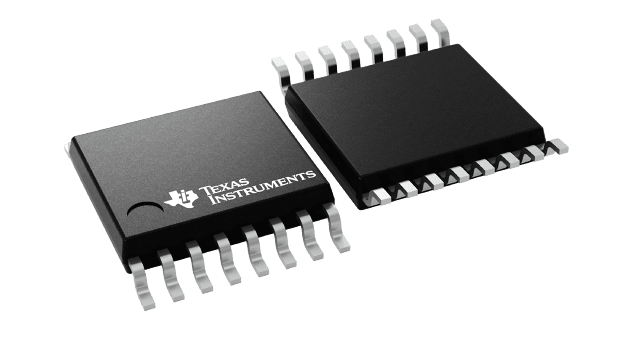| Configuration | 4:1 |
| Number of channels (#) | 2 |
| Power supply voltage - single (V) | 5 |
| Protocols | Analog |
| Ron (Typ) (Ohms) | 3 |
| CON (Typ) (pF) | 22 |
| Bandwidth (MHz) | 200 |
| Operating temperature range (C) | -40 to 85 |
| Features | Undershoot protection |
| Input/output continuous current (Max) (mA) | 128 |
| Rating | Catalog |
- SN74CBT3253C Functionally Identical to Industry-Standard ’3253 Function
- Undershoot Protection for Off-Isolation on A and B Ports up to -2 V
- Bidirectional Data Flow, With Near-Zero Propagation Delay
- Low ON-State Resistance (ron) Characteristics (ron = 3
 Typical)
Typical) - Low Input/Output Capacitance Minimizes Loading and Signal Distortion (Cio(OFF) = 5.5 pF Typical)
- Data and Control Inputs Provide Undershoot Clamp Diodes
- Low Power Consumption (ICC = 3 μA Max)
- VCC Operating Range From 4 V to 5.5 V
- Data I/Os Support 0 to 5-V Signaling Levels (0.8 V, 1.2 V, 1.5 V, 1.8 V, 2.5 V, 3.3 V, 5 V)
- Control Inputs Can Be Driven by TTL or 5-V/3.3-V CMOS Outputs
- Ioff Supports Partial-Power-Down Mode Operation
- Latch-Up Performance Exceeds 100 mA Per JESD 78, Class II
- ESD Performance Tested Per JESD 22
- 2000-V Human-Body Model (A114-B, Class II)
- 1000-V Charged-Device Model (C101)
- Supports I2C Bus Expansion
- Supports Both Digital and Analog Applications: USB Interface, Bus Isolation, Low-Distortion Signal Gating
The SN74CBT3253C is a high-speed TTL-compatible FET multiplexer/demultiplexer with low ON-state resistance (ron), allowing for minimal propagation delay. Active Undershoot-Protection Circuitry on the A and B ports of the SN74CBT3253C provides protection for undershoot up to -2 V by sensing an undershoot event and ensuring that the switch remains in the proper OFF state.
The SN74CBT3253C is organized as two 1-of-4 multiplexer/demultiplexers with separate output-enable (1OE, 2OE) inputs. The select (S0, S1) inputs control the data path of each multiplexer/demultiplexer. When OE is low, the associated multiplexer/demultiplexer is enabled, and the A port is connected to the B port, allowing bidirectional data flow between ports. When OE is high, the associated multiplexer/demultiplexer is disabled, and a high-impedance state exists between the A and B ports.
This device is fully specified for partial-power-down applications using Ioff. The Ioff feature ensures that damaging current will not backflow through the device when it is powered down. The device has isolation during power off.
To ensure the high-impedance state during power up or power down, OE should be tied to VCC through a pullup resistor; the minimum value of the resistor is determined by the current-sinking capability of the driver.






